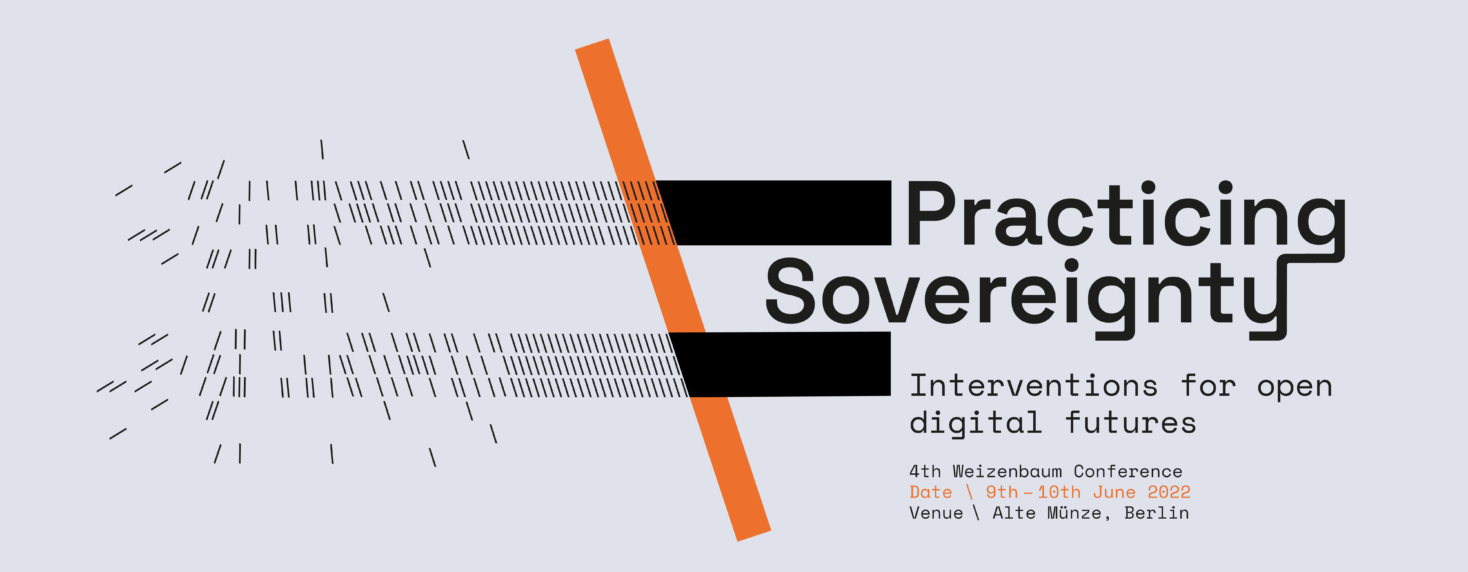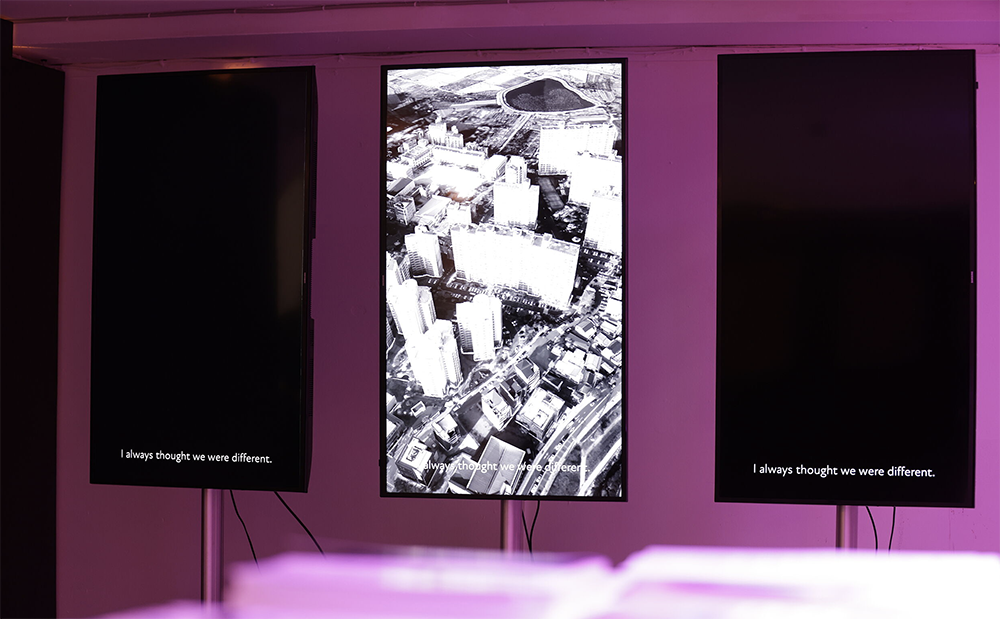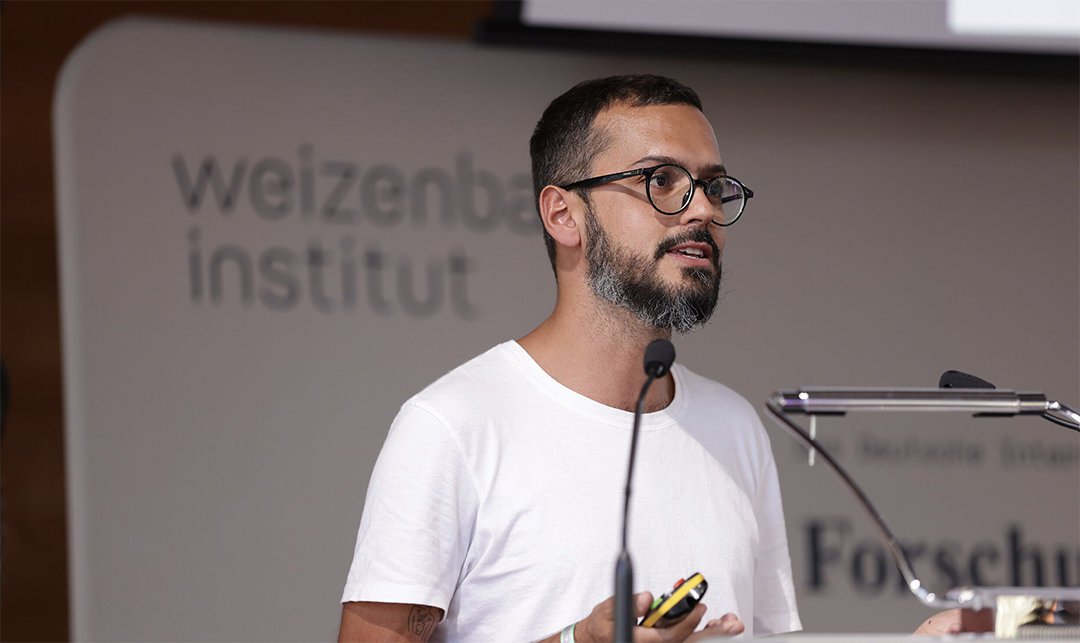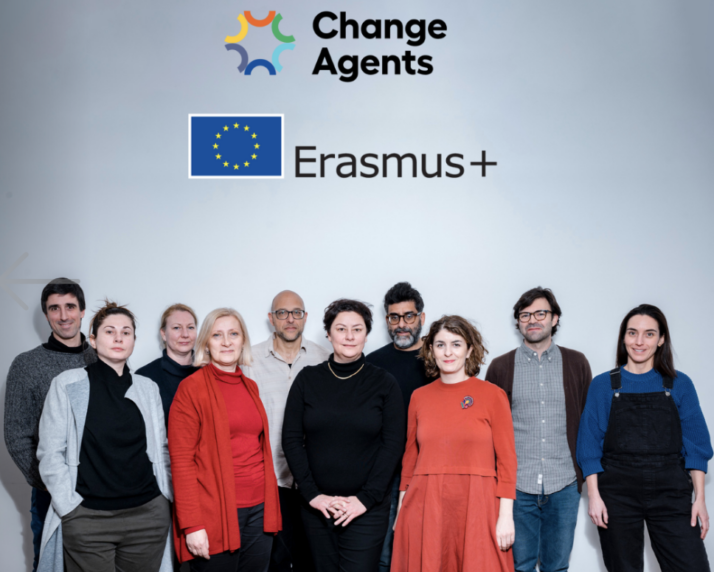Weizenbaum Conference 2022
Digital sovereignty: Weizenbaum Institute discusses ways to an open and just future of the digital world.
Around 300 participants from academia, the arts, activism and civil society discussed alternatives for an open and just society at the fourth Weizenbaum Conference. The conference took place under the title „Practicing Sovereignty. Interventions for an Open Digital Future“ on June 9 and 10, 2022, at the „Alte Münze“ not far from the Red City Hall in Berlin.
Topics of the lectures and discussions included digital literacy and inequality, the autonomy of the science system, the connection between datafication and democracy, and the question of what „digital sovereignty“ means and where its limits lie. Workshops were also offered in cooperation with the Federal Agency for Civic Education, for example on the „Cities Coalition for Digital Rights,“ in which 50 cities worldwide are engaged in jointly reshaping digital politics in an urban context.
Mario Brandenburg, recently appointed Parliamentary State Secretary at the Federal Ministry of Education and Research, opened the conference with his first speech in his new post. He emphasized the value of international exchange in science and European initiatives for digital sovereignty.
In her welcoming address, Berlin’s State Secretary for Science Armaghan Naghipour addressed Berlin’s pioneering role in the digital transformation, which aims to promote collaboration and access to knowledge. Naghipour criticized the lack of public digital infrastructures, which is why a great dependence on global capitalist platforms has emerged. In order to strengthen the autonomy of science and the public, infrastructures oriented toward the common good should be created.
Gesche Joost, professor of design research at the University of the Arts and co-organizer of the Weizenbaum Conference, also explaind the conference theme with the war in Ukraine and the „turn of the times“ announced by Olaf Scholz. The question of digital sovereignty is now more pressing than ever „What infrastructure for sensitive data do we need in Germany and in Europe? What hardware do we need to produce locally? How do we become less dependent on fragile global supply chains that also influence digital innovations?“
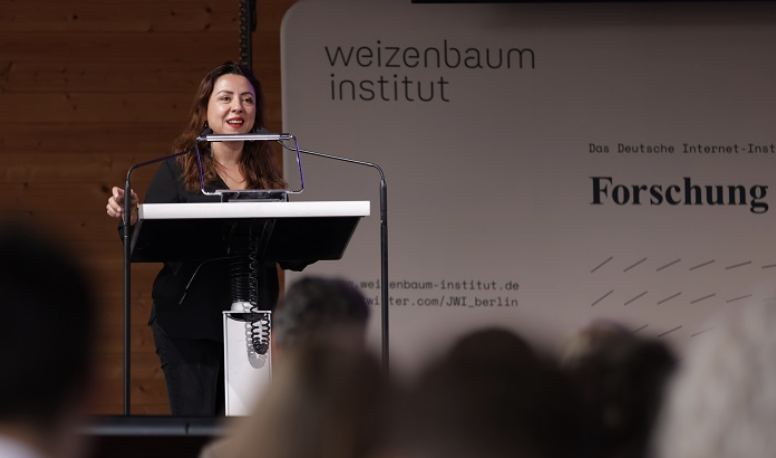
Renata Ávilla-Pinto | © Till Vill
Renata Ávilla-Pinto, Guatemalan lawyer and activist as well as executive director of the Open Knowledge Foundation, chose a drastic image for the state of the digital world in her keynote speech. This, she said, was a „building in danger of collapse.“ Technology has not brought enlightenment, but has led to self-inflicted immaturity. A necessary condition for a shared digital future, she said, is open knowledge. „The knowledge elite must use their privileges to make knowledge accessible to the general public.“
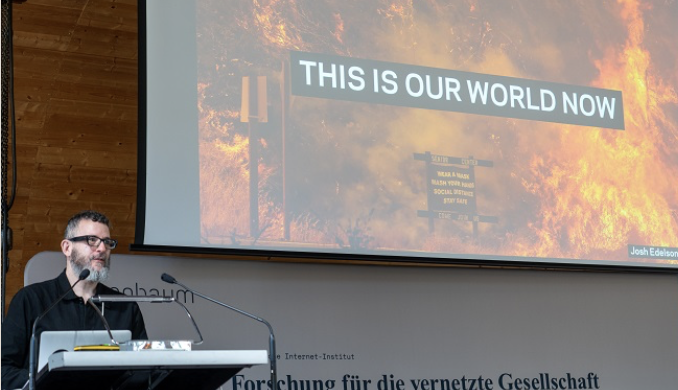
Adam Greenfield | © Tobias von Berge
The second day of the Weizenbaum Conference was opened by Adam Greenfield, internationally renowned expert on urban computing, with the keynote address „At The End of the World, Plant A Tree“. His starting point was also a dramatic analysis of the present, followed by an optimistic vision of the future: „Rethink what you value“ was the motto under which he made a series of concrete proposals ranging from strengthening local competence and short supply chains to an ethos of repair.
In an exhibition, digital artists and tech activists Claudio Guarnieri, Sarah Grant & Juan Pablo García Sossa, Joana Moll, Julian Oliver & Danja Vasiliev, Bill Posters, Lutz Reiter & Fabrizio Lamoncha, Adam Harvey, Kim Albrecht and Cyan Bae presented works that take a critical look at invasive technologies. Adam Harvey’s work depicted the vulnerability of the individual. He showed 700,000 faces from the online platform Flickr that were used to develop facial recognition software without the consent of the individuals concerned. The work caused a public stir because it also violated the personal rights of those shown.
Gilberto Vieira reported on Latin American experiences in his closing presentation. He showed how the sovereignty of marginalized populations can be promoted by digital means. Viera runs datalabe.org, a data lab in Maré, one of Brazil’s largest favelas. The data that citizens collect is intended to help reduce inequalities.
Bianca Herlo, head of the Weizenbaum conference’s scientific committee, saw the conference as a successful attempt to bring together people from different fields to form new alliances and cluster ideas. „With this conference, we also wanted to establish new understandings of research, where academic and non-academic actors work together to initiate change – for a socially and ecologically just digital transformation.“
Christoph Neuberger, Executive Director of the Weizenbaum Institute, gave a positive summary of the conference. „We are conducting research in the spirit of Joseph Weizenbaum. He called for the digital world to be shaped on the basis of moral values. We also want to discuss this at the fifth conference in 2023, the centenary year of Joseph Weizenbaum’s birth.“
Program
